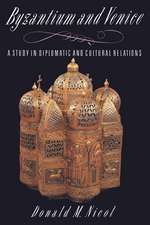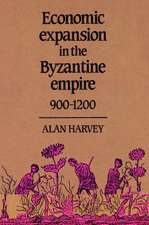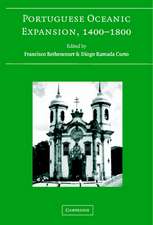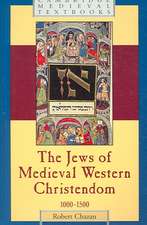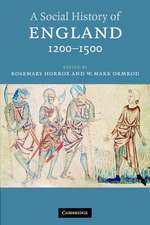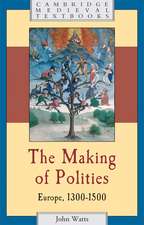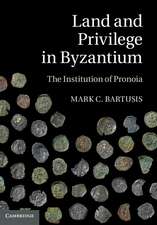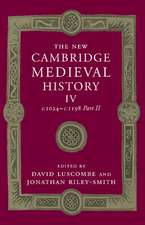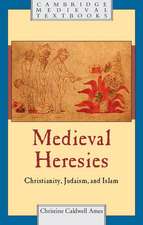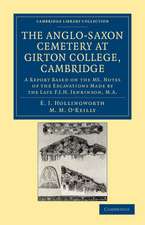An Environmental History of Medieval Europe: Cambridge Medieval Textbooks
Autor Richard Hoffmannen Limba Engleză Paperback – 9 apr 2014
| Toate formatele și edițiile | Preț | Express |
|---|---|---|
| Paperback (1) | 226.53 lei 3-5 săpt. | |
| Cambridge University Press – 9 apr 2014 | 226.53 lei 3-5 săpt. | |
| Hardback (1) | 643.56 lei 6-8 săpt. | |
| Cambridge University Press – 9 apr 2014 | 643.56 lei 6-8 săpt. |
Din seria Cambridge Medieval Textbooks
-
 Preț: 204.78 lei
Preț: 204.78 lei -
 Preț: 209.75 lei
Preț: 209.75 lei -
 Preț: 238.60 lei
Preț: 238.60 lei -
 Preț: 392.66 lei
Preț: 392.66 lei -
 Preț: 281.09 lei
Preț: 281.09 lei -
 Preț: 171.24 lei
Preț: 171.24 lei -
 Preț: 234.23 lei
Preț: 234.23 lei -
 Preț: 398.83 lei
Preț: 398.83 lei - 11%
 Preț: 554.35 lei
Preț: 554.35 lei -
 Preț: 285.27 lei
Preț: 285.27 lei - 11%
 Preț: 574.33 lei
Preț: 574.33 lei -
 Preț: 327.41 lei
Preț: 327.41 lei -
 Preț: 413.31 lei
Preț: 413.31 lei -
 Preț: 267.18 lei
Preț: 267.18 lei -
 Preț: 292.19 lei
Preț: 292.19 lei -
 Preț: 383.37 lei
Preț: 383.37 lei -
 Preț: 436.45 lei
Preț: 436.45 lei -
 Preț: 319.74 lei
Preț: 319.74 lei -
 Preț: 322.62 lei
Preț: 322.62 lei -
 Preț: 375.21 lei
Preț: 375.21 lei -
 Preț: 365.34 lei
Preț: 365.34 lei -
 Preț: 289.78 lei
Preț: 289.78 lei -
 Preț: 439.33 lei
Preț: 439.33 lei -
 Preț: 290.28 lei
Preț: 290.28 lei -
 Preț: 320.50 lei
Preț: 320.50 lei -
 Preț: 441.67 lei
Preț: 441.67 lei - 11%
 Preț: 457.95 lei
Preț: 457.95 lei -
 Preț: 363.65 lei
Preț: 363.65 lei -
 Preț: 287.39 lei
Preț: 287.39 lei - 14%
 Preț: 756.74 lei
Preț: 756.74 lei - 14%
 Preț: 885.74 lei
Preț: 885.74 lei
Preț: 226.53 lei
Nou
43.35€ • 46.35$ • 36.14£
Carte disponibilă
Livrare economică 28 martie-11 aprilie
Specificații
ISBN-10: 052170037X
Pagini: 427
Ilustrații: 29 b/w illus. 14 maps
Dimensiuni: 136 x 218 x 20 mm
Greutate: 0.5 kg
Ediția:New.
Editura: Cambridge University Press
Colecția Cambridge University Press
Seria Cambridge Medieval Textbooks
Locul publicării:Cambridge, United Kingdom
Cuprins
Introduction: thinking about medieval Europeans in their natural world; 1. Long no wilderness; 2. Intersecting instabilities: culture and nature at medieval beginnings (c.400–900); 3. Humankind and God's creation in medieval minds; 4. Medieval land use and the formation of traditional European landscapes; 5. Medieval use, management, and sustainability of local ecosystems 1: primary biological production sectors; 6. Medieval use, management, and sustainability of local ecosystems 2: interactions with the non-living environment; 7. 'This belongs to me …'; 8. Suffering the uncomprehended: disease as a natural agent; 9. An inconstant planet, seen and unseen, under foot and overhead; 10. A slow end of medieval environmental relations; Afterword.
Recenzii
Descriere
How did medieval Europeans use and change their environments, think about the natural world, and try to handle the natural forces affecting their lives? This groundbreaking environmental history examines medieval relationships with the natural world from the perspective of social ecology, viewing human society as a hybrid of the cultural and the natural. Richard Hoffmann's interdisciplinary approach sheds important light on such central topics in medieval history as the decline of Rome, religious doctrine, urbanization and technology, as well as key environmental themes, among them energy use, sustainability, disease and climate change. Revealing the role of natural forces in events previously seen as purely human, the book explores issues including the treatment of animals, the 'tragedy of the commons', agricultural clearances and agrarian economies. By introducing medieval history in the context of social ecology, it brings the natural world into historiography as an agent and object of history itself.




